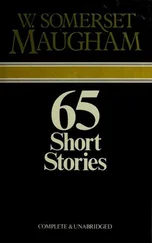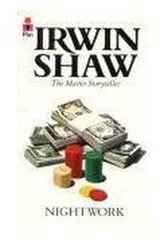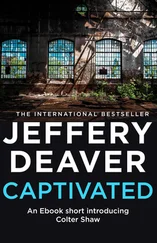Irwin Shaw - Short Stories - Five Decades
Здесь есть возможность читать онлайн «Irwin Shaw - Short Stories - Five Decades» весь текст электронной книги совершенно бесплатно (целиком полную версию без сокращений). В некоторых случаях можно слушать аудио, скачать через торрент в формате fb2 и присутствует краткое содержание. Год выпуска: 2013, Издательство: Open Road Media, Жанр: Современная проза, на английском языке. Описание произведения, (предисловие) а так же отзывы посетителей доступны на портале библиотеки ЛибКат.
- Название:Short Stories: Five Decades
- Автор:
- Издательство:Open Road Media
- Жанр:
- Год:2013
- ISBN:нет данных
- Рейтинг книги:5 / 5. Голосов: 1
-
Избранное:Добавить в избранное
- Отзывы:
-
Ваша оценка:
- 100
- 1
- 2
- 3
- 4
- 5
Short Stories: Five Decades: краткое содержание, описание и аннотация
Предлагаем к чтению аннотацию, описание, краткое содержание или предисловие (зависит от того, что написал сам автор книги «Short Stories: Five Decades»). Если вы не нашли необходимую информацию о книге — напишите в комментариях, мы постараемся отыскать её.
Short Stories: Five Decades — читать онлайн бесплатно полную книгу (весь текст) целиком
Ниже представлен текст книги, разбитый по страницам. Система сохранения места последней прочитанной страницы, позволяет с удобством читать онлайн бесплатно книгу «Short Stories: Five Decades», без необходимости каждый раз заново искать на чём Вы остановились. Поставьте закладку, и сможете в любой момент перейти на страницу, на которой закончили чтение.
Интервал:
Закладка:
“He’s a very nice, gentle boy,” Louise said. “He reads Ernest Dowson.”
“Who’s Ernest Dowson?”
Louise patted his arm, stood up, fixed her hair. “He’s an English poet.”
Darling felt that somehow he had disappointed her. “Am I supposed to know who Ernest Dowson is?”
“No, dear. I’d better go in and take a bath.”
After she had gone, Darling went over to the corner where the hat was lying and picked it up. It was nothing, a scrap of straw, a red flower, a veil, meaningless on his big hand, but on his wife’s head a signal of something … big city, smart and knowing women drinking and dining with men other than their husbands, conversation about things a normal man wouldn’t know much about, Frenchmen who painted as though they used their elbows instead of brushes, composers who wrote whole symphonies without a single melody in them, writers who knew all about politics and women who knew all about writers, the movement of the proletariat, Marx, somehow mixed up with five-dollar dinners and the best-looking women in America and fairies who made them laugh and half-sentences immediately understood and secretly hilarious and wives who called their husbands “Baby.” He put the hat down, a scrap of straw and a red flower, and a little veil. He drank some whisky straight and went into the bathroom where his wife was lying deep in her bath, singing to herself and smiling from time to time like a little girl, paddling the water gently with her hands, sending up a slight spicy fragrance from the bath salts she used.
He stood over her, looking down at her. She smiled up at him, her eyes half closed, her body pink and shimmering in the warm, scented water. All over again, with all the old suddenness, he was hit deep inside him with the knowledge of how beautiful she was, how much he needed her.
“I came in here,” he said, “to tell you I wish you wouldn’t call me ‘Baby.’”
She looked up at him from the bath, her eyes quickly full of sorrow, half-understanding what he meant. He knelt and put his arms around her, his sleeves plunged heedlessly in the water, his shirt and jacket soaking wet as he clutched her wordlessly, holding her crazily tight, crushing her breath from her, kissing her desperately, searchingly, regretfully.
He got jobs after that, selling real estate and automobiles, but somehow, although he had a desk with his name on a wooden wedge on it, and he went to the office religiously at nine each morning, he never managed to sell anything and he never made any money.
Louise was made assistant editor, and the house was always full of strange men and women who talked fast and got angry on abstract subjects like mural painting, novelists, labor unions. Negro short-story writers drank Louise’s liquor, and a lot of Jews, and big solemn men with scarred faces and knotted hands who talked slowly but clearly about picket lines and battles with guns and leadpipe at mine-shaft-heads and in front of factory gates. And Louise moved among them all, confidently, knowing what they were talking about, with opinions that they listened to and argued about just as though she were a man. She knew everybody, condescended to no one, devoured books that Darling had never heard of, walked along the streets of the city, excited, at home, soaking in all the million tides of New York without fear, with constant wonder.
Her friends liked Darling and sometimes he found a man who wanted to get off in the corner and talk about the new boy who played fullback for Princeton, and the decline of the double wing-back, or even the state of the stock market, but for the most part he sat on the edge of things, solid and quiet in the high storm of words. “The dialectics of the situation … The theater has been given over to expert jugglers … Picasso? What man has a right to paint old bones and collect ten thousand dollars for them?… I stand firmly behind Trotsky … Poe was the last American critic. When he died they put lilies on the grave of American criticism. I don’t say this because they panned my last book, but …”
Once in a while he caught Louise looking soberly and consideringly at him through the cigarette smoke and the noise and he avoided her eyes and found an excuse to get up and go into the kitchen for more ice or to open another bottle.
“Come on,” Cathal Flaherty was saying, standing at the door with a girl, “you’ve got to come down and see this. It’s down on Fourteenth Street, in the old Civic Repertory, and you can only see it on Sunday nights and I guarantee you’ll come out of the theater singing.” Flaherty was a big young Irishman with a broken nose who was the lawyer for a longshoreman’s union, and he had been hanging around the house for six months on and off, roaring and shutting everybody else up when he got in an argument. “It’s a new play, Waiting for Lefty; it’s about taxi-drivers.”
“Odets,” the girl with Flaherty said. “It’s by a guy named Odets.”
“I never heard of him,” Darling said.
“He’s a new one,” the girl said.
“It’s like watching a bombardment,” Flaherty said. “I saw it last Sunday night. You’ve got to see it.”
“Come on, Baby,” Louise said to Darling, excitement in her eyes already. “We’ve been sitting in the Sunday Times all day, this’ll be a great change.”
“I see enough taxi-drivers every day,” Darling said, not because he meant that, but because he didn’t like to be around Flaherty, who said things that made Louise laugh a lot and whose judgment she accepted on almost every subject. “Let’s go to the movies.”
“You’ve never seen anything like this before,” Flaherty said. “He wrote this play with a baseball bat.”
“Come on,” Louise coaxed, “I bet it’s wonderful.”
“He has long hair,” the girl with Flaherty said. “Odets. I met him at a party. He’s an actor. He didn’t say a goddam thing all night.”
“I don’t feel like going down to Fourteenth Street,” Darling said, wishing Flaherty and his girl would get out. “It’s gloomy.”
“Oh, hell!” Louise said loudly. She looked coolly at Darling, as though she’d just been introduced to him and was making up her mind about him, and not very favorably. He saw her looking at him, knowing there was something new and dangerous in her face and he wanted to say something, but Flaherty was there and his damned girl, and anyway, he didn’t know what to say.
“I’m going,” Louise said, getting her coat. “I don’t think Fourteenth Street is gloomy.”
“I’m telling you,” Flaherty was saying, helping her on with her coat, “it’s the Battle of Gettysburg, in Brooklynese.”
“Nobody could get a word out of him,” Flaherty’s girl was saying as they went through the door. “He just sat there all night.”
The door closed. Louise hadn’t said good night to him. Darling walked around the room four times, then sprawled out on the sofa, on top of the Sunday Times . He lay there for five minutes looking at the ceiling, thinking of Flaherty walking down the street talking in that booming voice, between the girls, holding their arms.
Louise had looked wonderful. She’d washed her hair in the afternoon and it had been very soft and light and clung close to her head as she stood there angrily putting her coat on. Louise was getting prettier every year, partly because she knew by now how pretty she was, and made the most of it.
“Nuts,” Darling said, standing up. “Oh, nuts.”
He put on his coat and went down to the nearest bar and had five drinks off by himself in a corner before his money ran out.
The years since then had been foggy and downhill. Louise had been nice to him, and in a way, loving and kind, and they’d fought only once, when he said he was going to vote for Landon. (“Oh, Christ,” she’d said, “doesn’t anything happen inside your head? Don’t you read the papers? The penniless Republican!”) She’d been sorry later and apologized for hurting him, but apologized as she might to a child. He’d tried hard, had gone grimly to the art galleries, the concert halls, the bookshops, trying to gain on the trail of his wife, but it was no use. He was bored, and none of what he saw or heard or dutifully read made much sense to him and finally he gave it up. He had thought, many nights as he ate dinner alone, knowing that Louise would come home late and drop silently into bed without explanation, of getting a divorce, but he knew the loneliness, the hopelessness, of not seeing her again would be too much to take. So he was good, completely devoted, ready at all times to go any place with her, do anything she wanted. He even got a small job, in a broker’s office and paid his own way, bought his own liquor.
Читать дальшеИнтервал:
Закладка:
Похожие книги на «Short Stories: Five Decades»
Представляем Вашему вниманию похожие книги на «Short Stories: Five Decades» списком для выбора. Мы отобрали схожую по названию и смыслу литературу в надежде предоставить читателям больше вариантов отыскать новые, интересные, ещё непрочитанные произведения.
Обсуждение, отзывы о книге «Short Stories: Five Decades» и просто собственные мнения читателей. Оставьте ваши комментарии, напишите, что Вы думаете о произведении, его смысле или главных героях. Укажите что конкретно понравилось, а что нет, и почему Вы так считаете.











